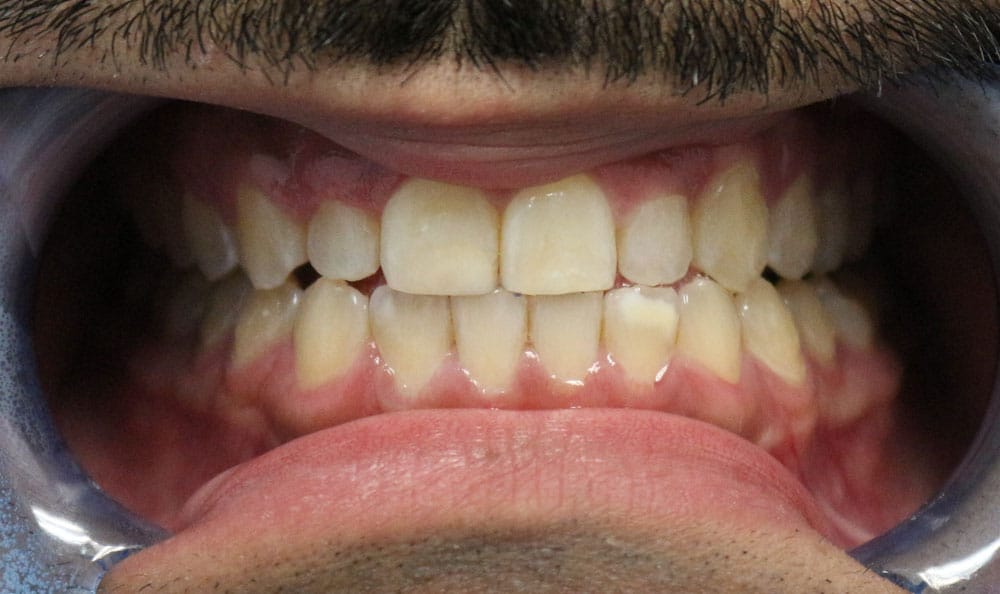A smile is the only thing God has gifted to improve your life. When you have a big, wide, cheerful smile, people around you also get happy and rejoice. A happy smile affects not only your surroundings but also your personality. Ensuring that your teeth are fixed gives you the confidence to talk and laugh aloud in public. With the changing world, many upgrades have been made in medical science. This ensures that everyone can get the best treatment for their problems. Through this article, you will know about the ways you can get your teeth in better condition by fixing all your dental problems. So, continue reading the article.
What are chipped teeth?
A chipped tooth is a broken tooth that comes off due to any problem like a cavity, plague, or an accident. Although significant chips can occasionally cause pain and cosmetic difficulties, having a chipped tooth is usually not a severe issue. You could be trying to figure out what to do with the broken tooth fragment and how to fix a recently chipped tooth. You should visit a dentist right away, and you might spit the chip into a cup filled with milk or saliva.

Different treatments can cure the chipped tooth
Here are some of the ways that will elaborate on how to fix chipped tooth:
Crowns
Many dental practitioners use this process to treat chipped teeth. This method covers the entire tooth, making it look similar to the others. It is also considered an excellent solution. Different types of crowns are available, and you can choose according to your preferences.
Dental filling or bonding
This is another simple procedure that does not require the numbing of the tooth. For bonding or chipped tooth filling, the dentist etches the surface with a liquid or gel that can roughen it to make the dental bonding stick to it. Then, they apply an adhesive material that is followed by tooth-colored resin. The dentist uses ultraviolet light to solidify the bonding substance after sculpting it to resemble a real tooth.

Dental Veeners
A dental veneer can restore wholeness and health to a fractured or chipped front tooth. Similar to how a false nail covers a fingernail, a dental veneer is a thin layer of tooth-colored porcelain or resin composite material that covers the entire front of the tooth, with a thicker area replacing the damaged portion of the tooth.
Root Canal
A root canal can treat a tooth with a break that has spread into the pulp. A crown may be inserted after the root canal to stop the crack from getting worse. You will be given a temporary crown to wear until then. Getting a root canal entails extracting the nerve and cleaning the damaged tooth material. There is a negative perception that this operation is painful. However, if done correctly, there shouldn't be any pain or minimal discomfort.
In Conclusion
This article mentions all the major types of treatment you can undergo for chipped tooth repair. Here is some advice: if you can't resist running your tongue over this new, strange location in your mouth, you might realize your tooth has chipped. Cover the chip with a jagged edge of sugar-free gum to shield your face, tongue, and lips until you can visit the dentist. It would be best to set your budget accordingly if you are familiar with the chipped tooth repair cost.
The very statement of root canal treatment may cause chills down your spine. Everyone has heard horror stories about getting a root canal, but what if I told you that it's not as difficult as it sounds? A root canal technique may save Your genuine teeth, and the discomfort bothering you may be relieved. Imagine the comfort you'll feel once the procedure is over. So buckle up and prepare for a comprehensive how-to on root canal therapy! You'll have a whole new perspective on this frequently misunderstood root canal process at the end of this essay. Now, let's relax and look at the world of root canals together!

The Root Canal Procedure
Here is the root canal procedure if you and your dentist feel that it is the best approach of action:
-
Removing the Pulp: The dentist will extract the tooth disorder signs or injured pulp using specialized tools after a small incision is made in your tooth.
-
X-rays: Your root canal near me will first take X-rays of your tooth to determine the geometry of the root canals and look for any bone infection.
-
Anesthesia: A local narcotic will be given to the area near the tooth to maintain it pain-free during the cure.
-
Cleaning and Disinfecting: After extracting the pulp, the dentist scrubs and sanitizes the interior of your tooth to ignore any leftover bacteria.
-
Filling the Tooth: After the tooth has been exhaustively cleaned, a substance called gutta-percha is used to fill it to lock out any remaining bacteria. A crown may occasionally be needed to strengthen and protect the tooth.
Signs You Might Need a Root Canal
-
Swollen Gums: The gums covering a problematic tooth can sometimes swell and evolve sensitive, indicating a disease.
-
Darkening or Discoloration: If the pulp inside your tooth has darkened in color, it may be injured or dead.
-
Spots on the Gums: Small, acne-like abscesses on your gums, incredibly close to an uncomfortable tooth, maybe a sign of an infection at the tooth's root
-
Severe Toothache: An annoyance deep inside your tooth may cause a toothache that keeps you up at night or hurts when you eat or consume hot or cold things.

Benefits of a Root Canal
This article will discuss the advantages now that you know what a root canal is and how it is performed.
-
Better Appearance: Your smile will appear just as it did previously. No voids or spaces allowed!
-
Efficient Chewing: You'll be able to chew food correctly once more. You won't have to skip your favorite meals due to dental pain.
-
Pain Comfort: A root canal can clear the excruciating toothache that repeatedly results from an infected or damaged tooth. You will be able to eat and consume without experiencing any distress. You should discuss with the Emergency Dentist Near Me how long a root canal lasts.
-
Saving Your Tooth: The fundamental objective of a root canal is to preserve your original tooth. Other dental issues, such as your other teeth shifting, can result from tooth loss.
-
Improved Oral Health: A root canal will remove the infection and prevent it from spreading to other areas of your mouth.
Conclusion
Are root canal techniques suitable for you, then? If you encounter tooth discomfort, swelling, bruise, or other signs of a damaged or diseased tooth, a root canal might be the answer to reduce pain, maintain your natural tooth, and return to a healthful, happy smile. Find out if a root canal is best for you by talking more about the procedure with your root canal specialist near me.
Wisdom teeth are extremely tough to floss and reach with a toothbrush because of their position. Insufficient cleaning could result in the region evolving into a haven for bacteria, which could cause gum disease and tooth decay. To prevent this, most dentists advise having the third molars extracted.
Because the teeth in the back of the mouth are hard to view, wisdom teeth extracted can be tricky. They frequently erupt at odd angles toward the adjoining teeth or stay impacted below the gum line. But this technique can be handled expertly with a dentist's assistance, giving you relaxation of mind that your oral health is in the right hands.

After Wisdom Teeth Removal: Dos and Don'ts
As Dos
Observe the advice of your dentist: Your oral surgeon or dentist will provide comprehensive instructions following your wisdom teeth recovery timeline. Pay close attention to them. They are crucial for a full recovery because they are tailored to your situation.
Rest: Allow your body to heal itself. Resting is essential in the initial days after surgery. Avoid physically taxing movements, as they may impede the recovery process.
Use Ice Packs: Ice packs applied to the outside of your face can help decrease the nodes. For the first 24 to 48 hours, use them for 20 minutes on and 20 minutes off.
Keep Your Head Up: Resting with your head up can lessen the node. Use an extra cushion to sustain yourself.
Stay Hydrated: Consume a lot of water, but refrain from using straws for several days. Drinking from a glass is preferable to avoid problematic blood clots.
Eat Soft Meals: Consume only soft and easy-to-chop foods, such as yogurt, pudding, mashed potatoes, and soup. Do not consume anything spicy or desirable.
Take Pain Medication as Prescribed: Follow the directions on any painkillers your dentist gave about tooth replacement cost. This will aid in controlling the investments, discomfort, and agony as you recuperate.
Maintain Oral Hygiene: As your dentist directs during Emergency Dentist Near Me Open Now, gently irrigate your mouth with warm saltwater to keep the surgery site clean. Avoid brushing or rinsing too forcefully.

Don't
Don't Consume Alcohol: Alcohol may negatively interact with painkillers and can impede the recovery method. Liquor should ideally be avoided until you have fully healed.
Don't Eat Tough, Crunchy, or Spicy Foods: Avoid items that need a lot of chewing because they could be awkward at the surgery site. Also, avoid hot meals as they may make you feel irritable.
Don't Touch the Surgical Area: Avoid using your fingers or tongue to contact the surgical area. If you leave it alone, it will decrease the recovery time for wisdom teeth removal.
Don't Spit or Suck: Avoid using straws or violent spitting. Blood clots, which are necessary for healthy healing, can be dislodged by suction.
Don't Smoke or Use Tobacco: Smoking might delay rehab and raise the chance of trouble. While you're recovering, refrain from smoking and using any tobacco products.
Don't Overexert Yourself: For infrequent days after surgery, avoid weighty lifting, severe movement, or vigorous workouts. Workouts may result in bleeding because they improve blood flow to the surgical site.
Don't Miss Follow-up Appointments: Follow your dentist's or oral surgeon's scheduled follow-up appointments. They will evaluate your healing and treat any problems.
Don't Drive While on Pain Remedy: Some painkillers may make moving safely challenging. If you're using medication anesthetics, make appointments for a driver if necessary.
Concluding the matter
Contact your Wisdom Teeth Extraction Near Me dentist or oral surgeon immediately if you encounter any complications, such as fever, pain, or swelling, which may indicate an infection three days after the removal. Following this article's crucial dos and don’ts will help ensure a speedy recovery after your wisdom teeth are extracted.




